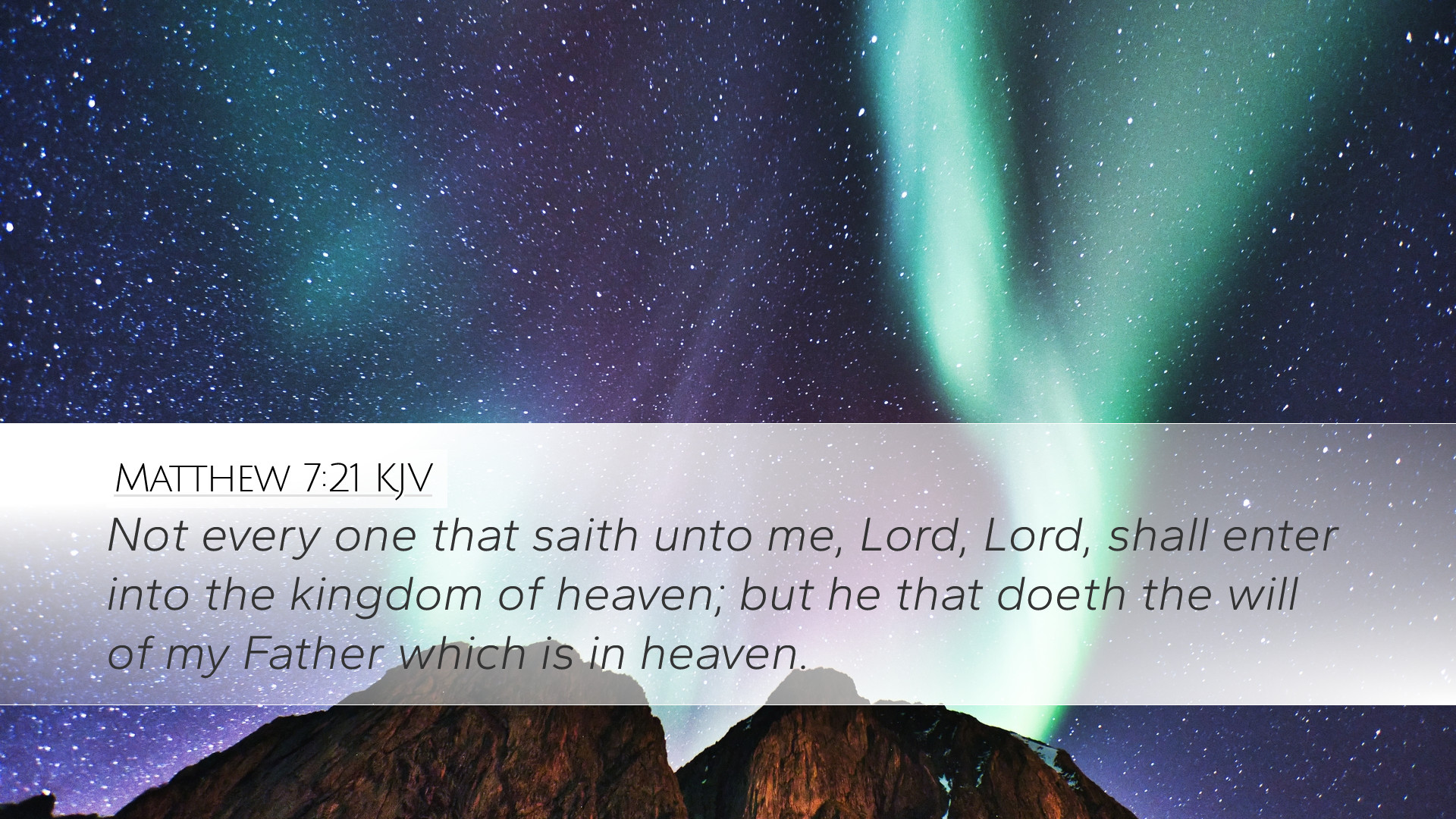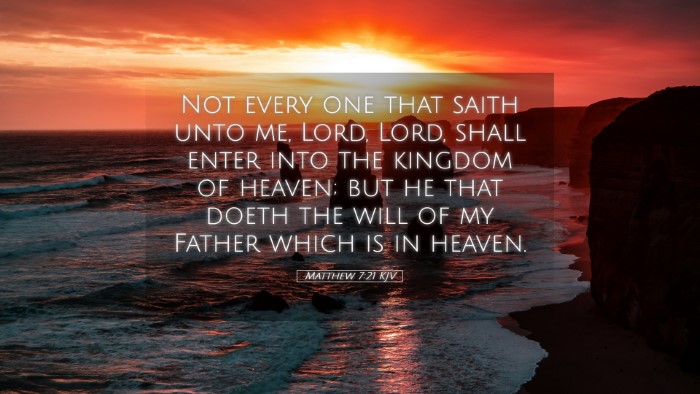Commentary on Matthew 7:21
Verse Text: "Not everyone who says to me, 'Lord, Lord,' will enter the kingdom of heaven, but only the one who does the will of my Father who is in heaven." (Matthew 7:21, NIV)
Introduction
Matthew 7:21 presents a profound declaration made by Jesus, emphasizing the distinction between mere verbal acknowledgment of His lordship and genuine obedience to God's will. Within this segment of the Sermon on the Mount, Christ unveils vital truths about the nature of true discipleship, challenging superficial religiosity and calling for a deeper, authentic relationship with God.
Exegetical Insights
The verse serves as a stark reminder that not all who profess faith in Christ will attain eternal life. The dual meaning of saying "Lord, Lord" suggests both a personal declaration as well as an external identification with Christ—hence, mere verbal proclamation is insufficient for salvation.
Matthew Henry's Commentary
According to Matthew Henry, this verse indicates that profession without practice is of no avail. He elucidates that the Lord is not looking solely for vocal confessions but for those who "do the will of my Father." True belief is evidenced through action, reflecting a transformed life and genuine obedience.
Albert Barnes' Commentary
Albert Barnes enhances the discussion by emphasizing the term "will of my Father." He notes that doing God's will encompasses a complete submission to His authority and a commitment to live according to His commands. Barnes highlights that the phrase signifies not merely a single act of obedience but a lifestyle marked by adherence to God’s dictates.
Adam Clarke's Commentary
Adam Clarke provides an in-depth analysis of the cultural context, suggesting that the phrase "Lord, Lord" carries a deep significance in the Jewish tradition of calling upon God. Clarke argues that Jesus' use of repetition serves to underscore the gravity of the matter, contrasting those who call Him Lord with those who genuinely embody that lordship through their actions. Clarke stresses the necessity of aligning one's life with divine principles as a testament of true discipleship.
Theological Reflections
This verse posits significant theological implications regarding the nature of faith, grace, and works. The relationship between faith and works has been a focal point among theologians throughout history, and Matthew 7:21 encapsulates the dynamic balance between belief and action.
- Faith as a Dynamic Response: Genuine faith, as indicated in this passage, cannot remain static. It should naturally result in a transformation of character and behavior, reflecting God's will.
- The Will of God: Understanding the "will of my Father" involves a deep engagement with Scripture, prayer, and community. It calls for believers to seek a personal relationship with God, which informs their moral and ethical decisions.
- Warning Against Deception: This verse serves as a sobering reminder of the dangers of self-deception in spiritual matters. One can be outwardly religious yet inwardly disconnected from the heart of God.
Practical Applications
Pastors, students, and theologians can draw several applications from Matthew 7:21:
- Self-Examination: Regular self-reflection on one's profession of faith versus actual practice is essential. This promotes a life that is authentically aligned with God’s commands.
- Preaching and Teaching: When communicating the Gospel, it is vital to convey the necessity of doing God's will as part of the Christian walk. This should be a key component of discipleship programs.
- Community Impact: As congregations reflect on this scripture, they should be encouraged to engage in social action that aligns with the heart of God, thereby demonstrating their faith through service.
Conclusion
Matthew 7:21 remains a powerful exhortation for all believers. It beckons each person to move beyond mere words to a living faith that manifests in obedience to God's will. Through the insights gleaned from respected commentaries, we are reminded of the serious nature of our call as followers of Christ—to embody our faith actively and faithfully.


